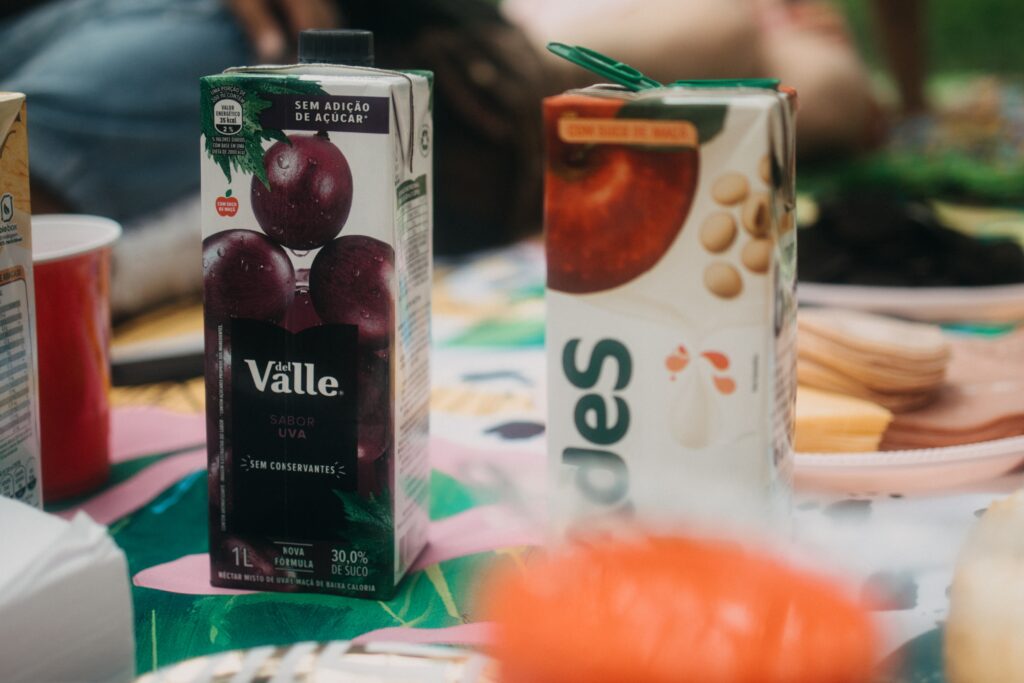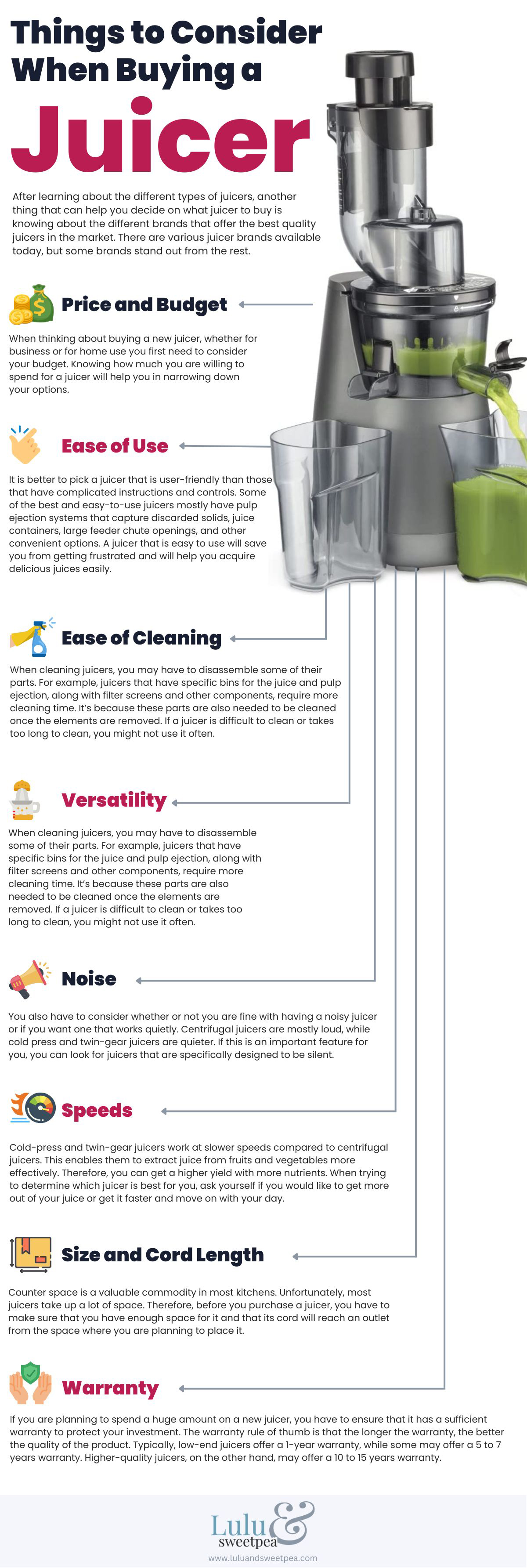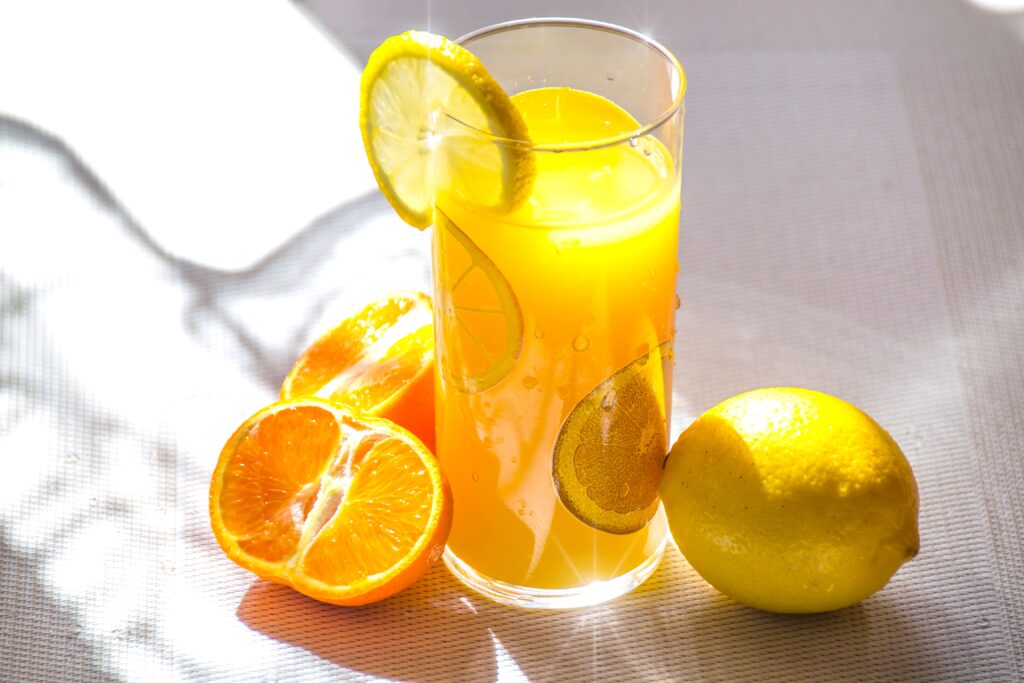Fresh fruits and vegetables are juiced to obtain their juice. The majority of the vitamins, minerals, and plant compounds (phytonutrients) present in the fruit are found in the liquid. Juicing is preferable to eating whole fruits and vegetables because it improves nutritional absorption and spares your digestive system from having to break down fiber. Juicing can help you lose weight, improve digestion, strengthen your immune system, eliminate toxins from your body, and lower your chance of developing cancer.
Juicing, however, could be a method to incorporate fruits and veggies into your diet or to give them a try if you do not want to consume them. If you decide to try juicing, just create as much as you can consume at once since freshly squeezed juice can rapidly get contaminated with hazardous germs. Choose a pasteurized product if you purchase professionally manufactured fresh juice.
Choosing between store-bought juices and homemade juices might be difficult. Although they might be more costly and contain extra sugars and preservatives, store-bought juices are sometimes more convenient. On the other hand, homemade juices may be created from fresh and organic ingredients, have a better nutritional value, and can be tailored to individual tastes. Juice preparation at home, however, might take a while and call for specialized tools. Juices from the market have a longer shelf life than juices produced at home, which must be used right away. Personal concerns, such as cost, convenience, and taste preferences, as well as the advantages to one’s health, ultimately determine the choice. Let us explore more insights about your juice consumption.
Benefits of Store-Bought Juices
Convenience
Juice from the supermarket will be far more practical than producing your own. Pre-made juices are simpler to grab if you are in a hurry than a piece of juicing equipment and raw ingredients. You may rush to the market and quickly pick up a few bottled juice alternatives even if you do not have any juice at home.
Longer shelf life
These juices are commonly pasteurized or treated with preservatives to make their shelf life longer.
Wide Range of Options
Fruit, vegetable, and mixed juices are just a few of the tastes and varieties of store-bought juices that are available. This enables customers to experiment with various juice blends and test out new flavors.
Nutrient Content
These store-bought juices are fortified with vitamins and mineral that adds to health benefits.
Price Comparison
If you do not have access to cheap, fresh produce or do not have the appropriate tools to make your juices, buying store-bought juices may be cheaper than creating your own at home. If you do not have an electric juicer, the upfront expenditures of embarking on a juice cleanse will be significant. Juicing equipment may easily range from roughly $100 to $300, and that is not counting any high-end triturating juicers.
Health Benefits
Juice from the supermarket can boost the mixture’s protein content. You need to be careful not to starve yourself too much because the best raw fruits and vegetables for juicing do not contain a lot of protein.
Ease of Preparation
Juices from the supermarket win the cup for being the easiest to prepare. Making homemade juices takes time and requires more than just clicking “add to cart” at the store. In addition to being time-consuming, making homemade juices requires a lot of effort because the process starts with choosing the juice to create before buying and preparing the components. They can also be extremely frustrating because the quality of your vegetables and other ingredients ultimately determines the quality of your juice.
Benefits of Homemade Juices
Hydraulic Press
Using a hydraulic press is one of the major methods a fresh-pressed juice bar will make beverages. To extract enzymes, natural sugars, and nutrients from the juice, a press is used with great power. You get a drink with more natural ingredients that are fresher thanks to the procedure.
Eating actual fruit is replicated by the technique. Since many commercially available juices are devoid of all-natural components, your body does not digest juices and pulp in the same manner. Store-bought juice is just fiber-deficient sugar-flavored water. The hydraulic press yields timely outcomes and tastes that are near to those of the original fruit.
Antioxidants
Natural antioxidants found in plant-based diets aid in preventing or reversing the cell damage caused by oxidants. Freshly squeezed juices are the best way to consume them, and those from fruits and vegetables with the greatest antioxidant levels offer the most protection against damage caused by unstable compounds that are naturally present in your body. Remember that fruits and vegetables with deeper colors typically have greater antioxidant contents when choosing the ideal ones for antioxidant beverages.
More Fiber
Fresh juices are full of soluble fiber, a type of fiber that supports the development of good bacteria and digestive health. It has been shown to regulate blood sugar levels, lower cholesterol, and postpone the digestion of meals. Drinking fruit and vegetable juice is a pleasant and healthful method to meet your necessary daily dose of soluble fiber, even though some varieties of cereal, nuts, and legumes also contain this substance. Apple juice and orange juice both provide close to three grams of good soluble fiber!
Customization of Taste and Nutrient Content
Here, homemade juice truly shines. In the shop, you may spend hours looking for the right balance of tastes and nutrients. Your options for the juice cleanse items may be severely constrained depending on where you can get them.
Making your fresh juice allows you to select the specific fruits and vegetables that suit your dietary requirements and palate. The best part is that you can mix and combine whatever you like. For instance, you may prepare green juice for lunch and strawberry and berry juice for the morning.
Cost Comparison
Dietary fiber is one component of store-bought juice that is missing. The addition of soluble and insoluble fiber to your diet, which aids in the regulation of your internal systems, is one of the main health benefits of fruits and vegetables. By mixing the remaining pulp into your juice after making it, you may reintroduce the fiber. Although it may take a few tries to get acclimated to the thicker consistency, you will be doing your body better as a result.
Nutritional Value
The nutritional content of the majority of store-bought juices is included on the labels, but the truth is that they are only about half as healthy as homemade juices. The majority of the nutrients in commercially available juices are lost during pasteurization, and extra chemical preservatives are added to extend shelf life. It is general knowledge that synthesized nutrients are inferior to naturally occurring chemicals, minerals, and vitamins, despite some businesses’ attempts to add them. Additionally, artificial sweeteners that are bad for your health are included in store-bought juices. Last but not least, homemade juices include soluble fiber, which is beneficial for digestion as well as your general health and body function, just like they do in their fruit form.
Hydration
Juices that have just been freshly squeezed provide your body with a lot of water. This water aids in the body’s digestion of vitamins, minerals, and enzymes from the entire food source as well as carbs, which are derived from the juice’s natural sugars. Maintaining proper hydration helps your body create energy, keep your metabolism going, and keep your skin healthy and supple.
If you are thinking of buying a juicer, take a look at the graphic below for more information:
Health Benefits
Nutrient Content of Store-Bought Juices
Fruit juices are rich in many different nutrients. Depending on the nutrients you believe you may be deficient in, and which health advantages would be most beneficial for you, you may adjust the amount of fruit juice you consume. Here are a few possible advantages of fruit juice for your health.
Minimizes inflammation
Fruit juices are rich in antioxidants, which lessen the damaging effects of free radicals on your body and protect it from inflammation. Autoimmune diseases and chronic sickness can result from persistent inflammation.
Guards against cardiovascular disease
Fruit juices can be included in an antioxidant-rich diet to assist maintain cardiovascular health since antioxidants have been demonstrated to prevent the free radical damage that can result in the early stages of blocked arteries. Antioxidants can also be found in whole fruits and vegetables.
Muscle restoration
In a trial, cherry juice was given to marathon participants 5 days before, the day of, and 2 days after the race. Cherry juice has been hailed for its capacity to aid muscle recovery after strenuous exercises. The indices of oxidative stress, muscle injury, and inflammation were lower in the group of runners who drank cherry juice than they were in the placebo group.
Immune system
Many fruit juices, including orange juice, of course, include the nutrient vitamin C. However, why is vitamin C so crucial? It is necessary for healthy blood vessels and strong connective tissue. For the immune system to operate normally, vitamin C is also necessary.
Digestive wellness
Although prune juice is well known for its function in bowel regularity, other fruit juices can also aid in promoting bowel movements in those who are constipated. If you want to consume fruit juice regularly, you can choose between apple juice and pear juice.
Prevent birth deformities
Folate may be found in pineapple juice. Because it helps prevent spina bifida, a neural tube disease in which the spine does not correctly develop, folate is an essential vitamin for expectant mothers. Another excellent source of folate is orange juice.
Nutrient Content of Homemade Juices
Digestive Health
Although prune juice is well known for its role in bowel regularity, other fruit juices can also help persons who are constipated by stimulating bowel movements. Apple juice and pear juice are your options if you frequently drink fruit juice.
Preventing birth defects
Pineapple juice contains folate. Folate is a crucial vitamin for expecting moms because it prevents spina bifida, a neural tube disorder in which the spine does not grow properly. Orange juice is another fantastic folate source.
Comparison of Health Benefits
- Nutrient content – As they frequently contain a broader range of fruits and vegetables and are not pasteurized, which can damage some nutrients, homemade juices can offer a bigger variety and a higher concentration of nutrients.
- Content of fiber – Unstrained homemade juices may include some fiber, which is crucial for digestive health and may help control blood sugar levels. Juices purchased from stores are frequently filtered to eliminate the fiber, which lessens the total health benefits.
- Sugar content – To improve their flavor, store-bought juices frequently include extra sugars or high-fructose corn syrup, which can lead to weight gain, inflammation, and other health issues. Whole fruits and vegetables used to make homemade juices often have a lower sugar content and a higher level of natural sweetness.
- Preservatives and additives – Store-bought juices frequently include preservatives and chemicals to increase their shelf life and enhance their flavor or appearance. On the other hand, homemade juices do not include any of these synthetic substances.
- Cost – If you have access to reasonably priced fresh produce and a juicer or mixer, homemade juices may be more economical than store-bought alternatives.
Environmental Impact
Packaging and Waste from Store-Bought Juices
Products used for packaging and containers, particularly corrugated boxes, are commonly recycled. 53.9 percent of the packaging and containers that were produced in 2018 were recycled. In addition, landfills received 30.5 million tons (20.9 percent of total landfilling) and 7.4 million tons (21.5 percent of total combustion with energy recovery) of containers and packaging in 2018.
Multiple materials, including paper and paperboard, glass, steel, aluminum, plastics, wood, and trace amounts of other materials, are used to make containers and packaging goods for MSW.
Store-bought juice packaging and trash can have a substantial negative influence on the environment. The majority of store-bought juices come in single-use plastic bottles, which adds to the problem of plastic waste. These bottles often wind up in landfills or the ocean, where they damage animals and take hundreds of years to decompose. A large amount of energy and resources are also used in the manufacturing and shipping of these bottles and juice goods, which adds to greenhouse gas emissions and climate change. By opting to buy juices in glass or aluminum containers or by preparing their juice at home with fresh fruits and vegetables, consumers may lessen their influence on the environment.
Impact of Transportation and Storage
Store-bought juices are among the products whose storage and transportation have a substantial negative influence on the environment. Fossil fuels must be burned to transport these goods, which increases greenhouse gas emissions and the effects of climate change. Additionally, these items frequently need to be refrigerated for storage, which uses a lot of energy. The usage of refrigerants may potentially have an impact on global warming and ozone depletion. By selecting items made locally and eliminating needless shipping and storage, consumers may lessen their influence on the environment. Additionally, they may select items with effective packaging to save on the amount of space needed for storage and shipping, as well as refrigeration methods that use less energy.
Sustainability of Homemade Juices
Depending on the ingredients and preparation techniques, homemade juices may be a more environmentally friendly choice than store-bought juices. Customers may lessen the environmental effect of shipping and packing, as well as the usage of preservatives and chemicals sometimes found in store-bought juices, by creating their juice at home. Additionally, customers have the option to utilize locally grown produce that is in season, lowering the carbon footprint of transportation. It is important to remember that the juicing technique also affects how long homemade juices last. A manual juicer or a blender may be a more environmentally friendly alternative to high-speed juicers, which can be energy-intensive and generate a lot of trash. Overall, when created with careful thought to the effects on the environment, homemade juices may be a more sustainable option.
Conclusion
Summing up, it is difficult to resolve the argument between easily accessible juices and homemade juices. Both choices offer pros and drawbacks. Juices from the store come in a variety of flavors and are convenient, but they may be pricey and include preservatives and extra sugars. On the other hand, handmade juices give you greater control over the ingredients, ensure freshness, and let you customize the flavor and nutritional value, but they take more time and work to make.
There are several environmental effects to store-bought juices, particularly on packaging and transportation. The decision between store-bought and homemade juices ultimately comes down to dietary requirements, lifestyle, and personal preferences. However, to ensure the best quality and freshest ingredients, we advise using handmade juices wherever feasible.
Try and discover while experimenting with various recipes for juicing. Choosing to drink juice consciously may have a big influence on our health, finances, and the environment.







